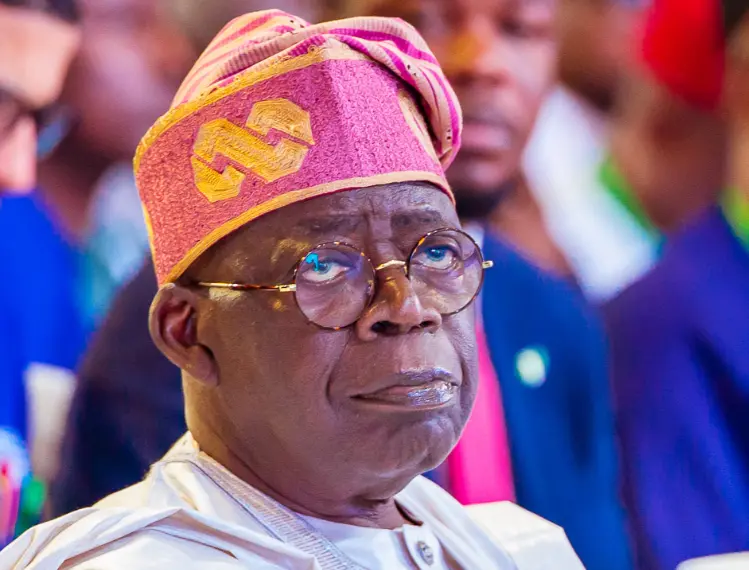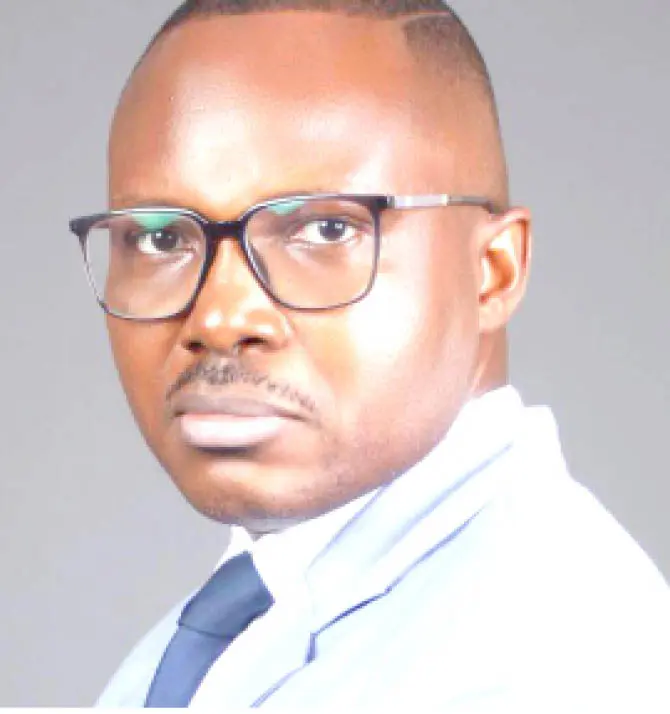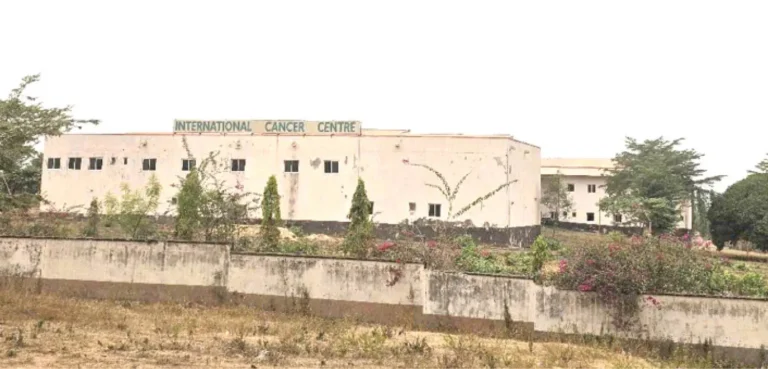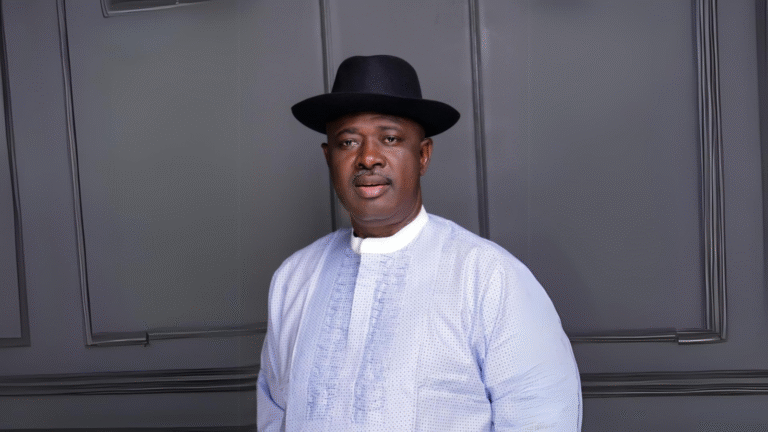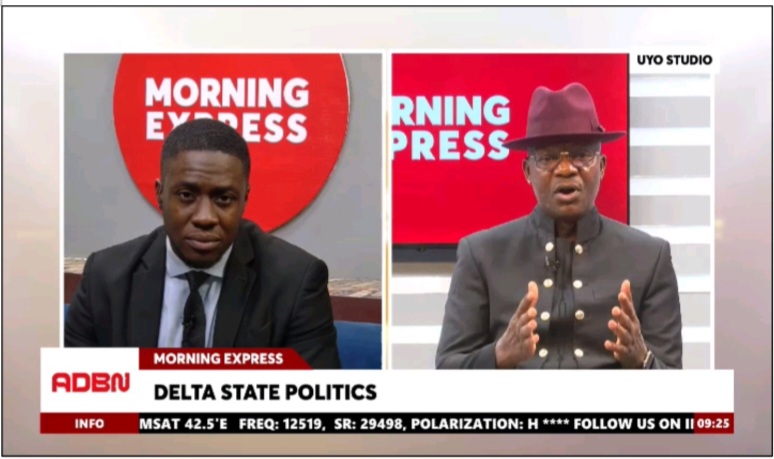
The Delta State Commissioner for Works (Rural Roads) and Public Information, Hon. Charles Aniagwu, has dismissed concerns that recent political defections in the state point to the emergence of a one-party system.
Speaking during a televised interview in Advocate Broadcast Network (ADBN) in Uyo, Akwa Ibom State, Aniagwu explained that the political movements are part of Nigeria’s evolving democratic experience and should not be misconstrued as a threat to political plurality.
“What is most important is not the number of political parties, but the ability of any party in power to deliver good governance and improve the welfare of the people,” Aniagwu stated.
He emphasized that the recent defection of some politicians to the APC, including himself, was driven by the need to consolidate developmental gains in Delta State, not personal ambition or opportunism.
Aniagwu also underscored the importance of strong opposition, noting that a vibrant opposition is necessary to keep the ruling party accountable. He urged the media to continue playing its constitutional role in holding both government and opposition parties to account.
On infrastructure, Aniagwu explained the rationale behind the creation of separate ministries for urban and rural roads, citing the scale and complexity of Delta’s infrastructural needs. He noted that Governor Sheriff Oborevwori’s administration, under the MORE Agenda, is investing significantly in road projects, particularly in rural and riverine areas, to ensure equitable development across all regions.
“Delta is big enough to justify the unbundling of the Works Ministry. With over ₦300 billion committed to infrastructure, close supervision is necessary to ensure speedy and quality delivery of projects,” he said.
Highlighting ongoing projects, he mentioned the completion of the Beneku Bridge, ongoing construction of the Asaba Base Bridge, and the Ayakoromo Bridge in Burutu, among others, as evidence of the government’s commitment to connecting rural communities and stimulating local economies.
He also cautioned against calls for the creation of new states within Delta, stressing that such agitations should focus on genuine development needs and not the political aspirations of a few individuals.
Aniagwu concluded by reaffirming the Oborevwori administration’s commitment to inclusive development, adding that the government remains focused on improving the lives of all Deltans through infrastructure, reforms, and enhanced pThe Delta State Commissioner for Works (Rural Roads) and Public Information, Hon. Charles Aniagwu, has dismissed concerns that recent political defections in the state point to the emergence of a one-party system.
Speaking during a televised interview in Advocate Broadcast Network (ADBN) in Uyo, Akwa Ibom State, Aniagwu explained that the political movements are part of Nigeria’s evolving democratic experience and should not be misconstrued as a threat to political plurality.
“What is most important is not the number of political parties, but the ability of any party in power to deliver good governance and improve the welfare of the people,” Aniagwu stated.
He emphasized that the recent defection of some politicians to the APC, including himself, was driven by the need to consolidate developmental gains in Delta State, not personal ambition or opportunism.
Aniagwu also underscored the importance of strong opposition, noting that a vibrant opposition is necessary to keep the ruling party accountable. He urged the media to continue playing its constitutional role in holding both government and opposition parties to account.
On infrastructure, Aniagwu explained the rationale behind the creation of separate ministries for urban and rural roads, citing the scale and complexity of Delta’s infrastructural needs. He noted that Governor Sheriff Oborevwori’s administration, under the MORE Agenda, is investing significantly in road projects, particularly in rural and riverine areas, to ensure equitable development across all regions.
“Delta is big enough to justify the unbundling of the Works Ministry. With over ₦300 billion committed to infrastructure, close supervision is necessary to ensure speedy and quality delivery of projects,” he said.
Highlighting ongoing projects, he mentioned the completion of the Beneku Bridge, ongoing construction of the Asaba Base Bridge, and the Ayakoromo Bridge in Burutu, among others, as evidence of the government’s commitment to connecting rural communities and stimulating local economies.
He also cautioned against calls for the creation of new states within Delta, stressing that such agitations should focus on genuine development needs and not the political aspirations of a few individuals.
Aniagwu concluded by reaffirming the Oborevwori administration’s commitment to inclusive development, adding that the government remains focused on improving the lives of all Deltans through infrastructure, reforms, and enhanced peace and security.eace and security.

